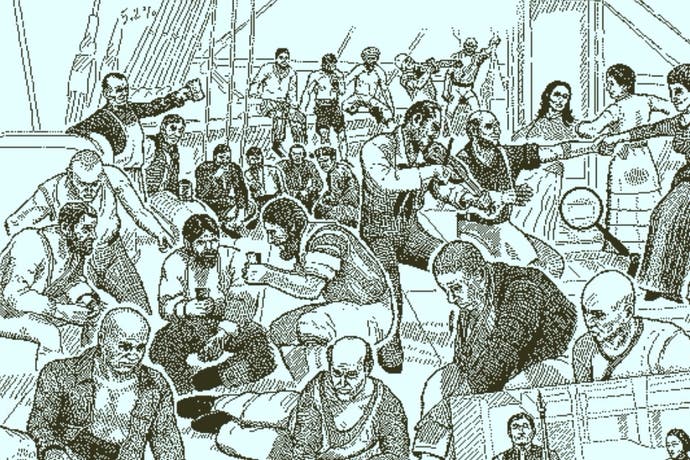Lucas Pope on life after Papers, Please
The long road to the Return of the Obra Dinn.
Lucas Pope turned down Uncharted 3. He found a seat at Naughty Dog during the development of the first Uncharted and stuck around for Uncharted 2, but when Drake's third outing rocked up, he left the studio because he wanted to experiment with smaller, weirder games. Those experiments would eventually lead to Papers, Please, one of the finest games of 2013 and, to most people, Pope's first name. His last name is guy.
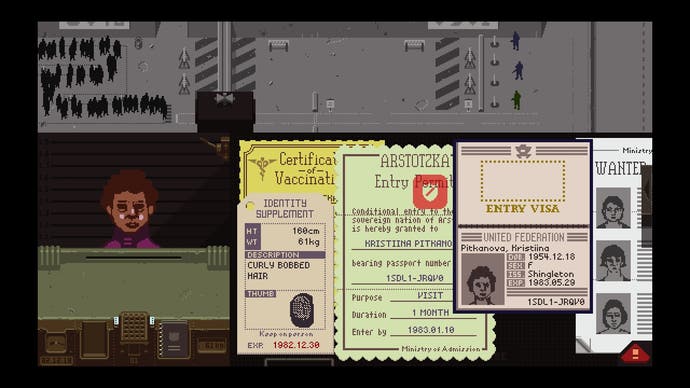
Today, the Papers, Please guy is hard at work on another experiment: Return of the Obra Dinn. Pitched as a death-fuelled mystery adventure set aboard an abandoned trade ship, Obra Dinn first surfaced in 2014, just as Pope was polishing off the bulk of Papers, Please. It's still not out. It might not be out this year. To understand why, you have to back much further than 2014, all the way back to the '90s, to a small town in Virginia where a young Pope finds himself enamoured with a Macintosh and Quake mods.
"I started out doing skins mostly, because that was easy," Pope tells me over Skype from his home in Tokyo, Japan. "You could just open up a 2D file and draw one and then you could see it in 3D. It was fucking amazing. Then I got involved with a couple guys on the internet who were making small commercial mods. Sony had the idea to make a Quake mod to promote [the film Anaconda]. I hooked up with the guy who was doing that and did a couple of skins for him."

Not long after, in 1998, Pope hooked up with a couple more Quake modders and founded Ratloop, his first indie studio. Pope and his crew had just finished Malice, a total conversion mod for Quake, and wanted to properly enter the heady world of '90s game development. So they quit their jobs, formed a studio in Virginia and prayed to Walmart.
"In the late '90s, if you wanted to sell a game, there was no Steam, there was no online storefront," Pope says. "You needed a shitload of capital up front. You needed to press discs and make boxes and ship them. The real component to that in the US was Walmart. They were the retailer for PC games. And Walmart had a stipulation where you needed to be able to provide, say, 5000 copies anywhere in the US within 24 hours. That requires a big company. Four guys in Virginia aren't going to be able to handle that. So you needed a publisher."
Eager to attract a backer, the Ratloop crew tried their hand at a third-person action adventure game, but it never got off the ground. With no major releases under their belt, the studio soon hit a wall. They could disband and go back to their previous lives or, maybe, try "something crazy". So they made Gearhead Garage, a game about repairing cars and very specifically not driving them, an alien concept for the time.
"I had the idea to try something very niche: a car repair game," Pope says. "At the time, Deer Hunter was a huge thing. It worked well with the Walmart distribution because people who hunt deer shop at Walmart. I grew up fixing cars with my dad in a garage, so I thought, well, I like to fix cars and I think other people do, too, and that's kind of an unusual, untapped niche. Why don't we go for that? It ended up being just right for us and Activision Value, who bought the game, published it and it made a lot of money.
"That set us up for those unusual, more experimental games. But at the time, we didn't have another good idea, and we were in competition with other studios who could make games cheaper. So things kind of petered out at Ratloop after that, and that closed the chapter on using a publisher and making games the old way."
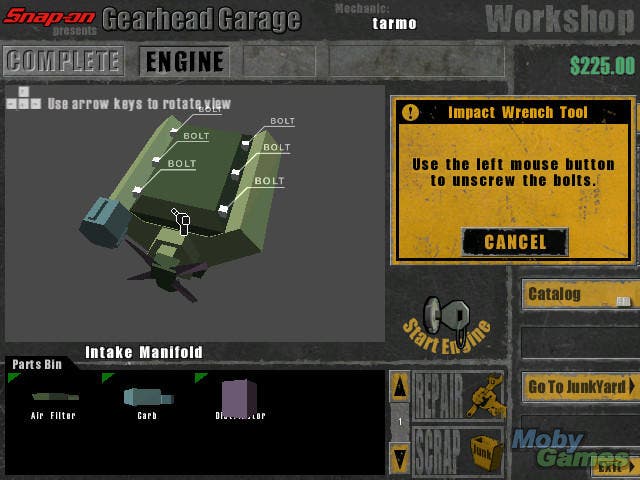
Of course, Pope never got over his love of unusual, experimental games. He didn't forget his beloved Macintosh, either. In fact, its one-bit, black-and-white graphics were the main inspiration for Obra Dinn. Whereas Papers, Please began with a mechanic, with Obra Dinn Pope worked backwards and built mechanics around the goal of recreating one-bit graphics, which wasn't easy or, he admits, optimal.
"Once I had the idea for the visuals, I knew I wanted it to be a 3D game, and first-person because that's what I'm familiar with because I enjoy playing first-person games. As a player, I really like to be in the eyes as opposed to looking over the shoulder. And I had a couple different ideas about what to do with that.
"The original idea was kind of an indie bullshit thing where I wanted the game to be the player constantly dying. It was actually very close to What Remains of Edith Finch - you would replay the deaths of people. But there was more of a puzzle mechanic where you would see the dead body, you'd have some context for how they died, and you'd be snapped back to one minute before they died and you'd need to reproduce what happened to them. There was more of a core puzzle aspect to it. But I quickly realised that's way too much work.
"A lot of what I do design-wise is set up some restrictions and boundaries and then figure out what I can do with them. I'd done enough of that idea that, to make it something I could finish, I had to change something major about it. And that's when I ended up with the idea for the freeze-frame flashbacks and using that mechanic to tell a story."
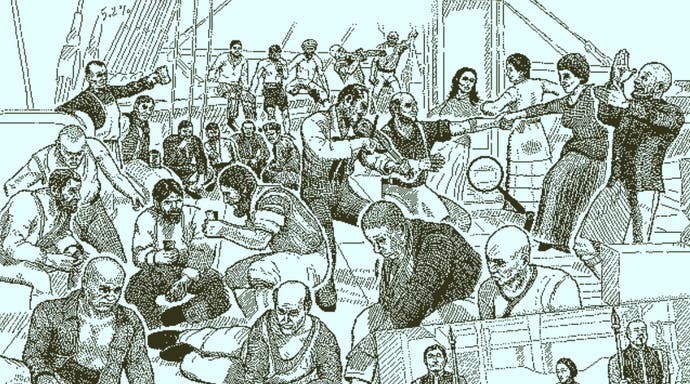
Obra Dinn is a game about filling in blanks. You're sent out to recon the titular ship, only to find its entire crew of 60 dead, and many of them missing. Armed only with a journal and a compass which lets you visit and replay moments of death, you must discern and record the details of the crew's "fates" and connect them to 10 disasters. What or who killed them? Where did they die? There's more than a bit of Clue to Obra Dinn, but while it sounds straightforward, Pope says getting it to that point was arduous and the main reason Obra Dinn has taken so long. For reference, Papers, Please took him nine months to make.
"The restrictions are really severe with this game, more so than with Papers, Please," Pope says. "On the one hand, I really like I can only tell story through moments of death, the instant when somebody dies. But to relay a story to the player is kind of tricky, because you can only tell them things when somebody dies. So first off, people have to be dying left and right, and you need a reason for people to be dying constantly. And that's sort of unusual, people don't generally die all the time. Getting that working with the story in a way that the player can understand took a long time."
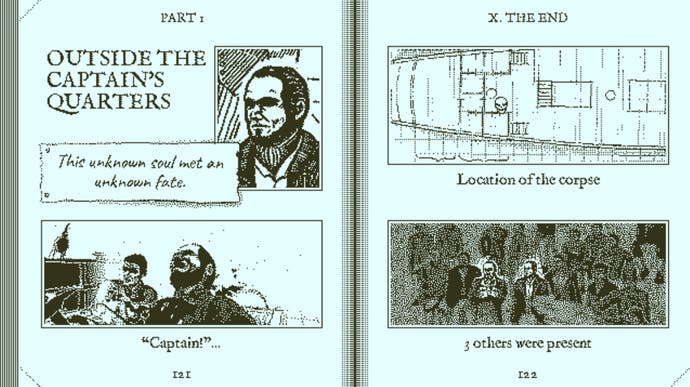
The idea of setting design restrictions and working around them comes up repeatedly as I chat with Pope, and every time I can practically hear him smile. Even as he explains the huge design holes he found in the alpha build of Obra Dinn, Pope is excited, not exasperated. Despite the engineering problems, the programming challenges, writing the music, polishing the art and doing all of this all on his own - everything is "fun".
At times it's frustrating, discouraging and overwhelming, but it is fun. Spending two years learning the eccentricities of Maya, Obra Dinn's primary coding language, has been fun. Sliding from "a quick 3D game in Unity" to a years-long project has been fun. Wrangling dozens of voice actors with the help of accent-sensitive locals has been fun.
What hasn't always been fun is working in the shadow of Papers, Please.
"For a long time, I was really caught up in following Papers, Please with something. Papers, Please won a few awards and everyone is kind of waiting for what I'm going to do next. That was a lot of pressure for a long time. I guess it went on so long that I lost energy to be worried about it.
"I have two kids now who are growing up. So in general, my life focus is less about hoping people love the games I make and more about family stuff. That has lifted a lot of the pressure off me as far as, 'this game needs to be totally awesome.' I feel like if the game is just good, that's fine. I'm still trying to make a game that I would enjoy. All the choices I make are things that I feel are in service to what I envision for the game. That part hasn't changed, but initially there was a lot of pressure on me to do something totally awesome after Papers, Please, and that's lightened up a lot after so many years."
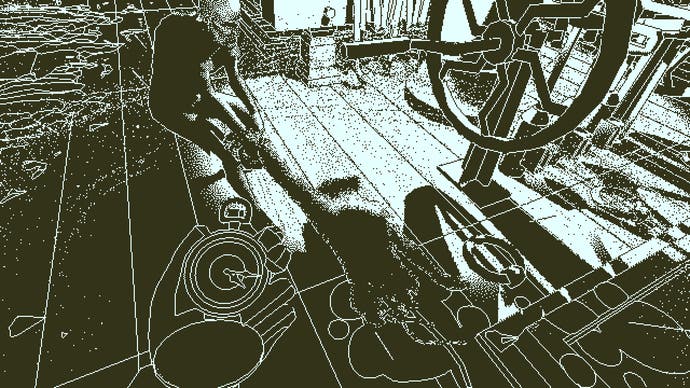
There's another big reason Pope isn't worried about the timeline or success of Obra Dinn: Papers, Please "still sells pretty well", and Pope isn't relying on Obra Dinn to bail him out of the red. He and his family will be fine no matter how many awards it wins, so he's in no rush to release or even market it. The calm, honest way he explains it is at once baffling and refreshing.
"Something I've always been afraid of is having people give me money for something they don't like. So I'm very timid when it comes to marketing or promotion. I would rather you just download the game. You heard somebody liked it, you downloaded it, you tried it and you liked it yourself. As opposed to being sold on PR or some kind of presentation."
After Ratloop and Naughty Dog, Pope is tired of PR and tired of publishers. He says he's the wrong person to ask about indie development because his perspective is "so fucked up" due to the success of Papers, Please, but if anything the man is independence on legs. He's repeatedly turned down publisher deals for Obra Dinn because he doesn't want anything to intrude on his vision, his all-important restrictions. Because while he cares about you and me, more than anyone, Lucas Pope makes games for himself.
"There's two employees at this company: me and my wife. There's not a huge network of people we need to support or expenses. I could expand and make a bigger company and make bigger games, but I would totally lose this luxury I have right now. And what I really want to do is keep making games. That's the big bonus for me. I can make another game."
